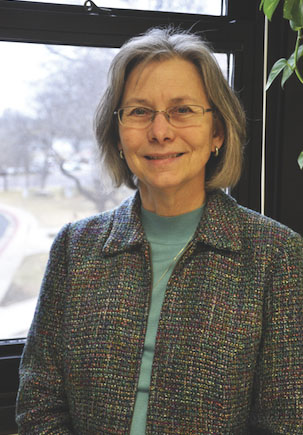
Teacher Says “Don’t Put Off Screening”
By: Jessica Park
Kathleen Metter knew when she turned 50 that she should schedule a routine colonoscopy. As a biology teacher at Hickman High School, where she teaches 10th graders, Kathleen wasn’t squeamish. “Nobody likes to talk about the colon, but it’s a part of us. But everybody’s busy and has to find the time for screening.”
At 52, Kathleen had her screening at Boone Hospital Center’s GI Lab. When she awoke, she was told that the screening revealed a polyp, an abnormal growth in the lining of the colon. It was cancerous and required surgery.
Fortunately, the cancer was detected early enough that it hadn’t spread. The polyp was surgically removed and required no chemotherapy or radiation.
“I keep thinking, if I’d had it done at 50, could I have avoided surgery completely?” Kathleen asks.
“It’s possible,” says GI Lab manager Lucy Shaffer, RN-CGRN. “Polyps grow slowly. They don’t present symptoms like pain or changes in bowel movements until they’ve advanced.”
Shaffer thinks people may put off a colonoscopy out of fear. “When I get together with friends or colleagues, the conversation often turns to colonoscopy. They have questions about the procedure.”
Shaffer, who’s been with Boone Hospital Center since 1991, is one of three nurses at Boone with gastroenterology nursing certification.
“Our expertise starts before the procedure,” she says.
Preparation for colonoscopy includes a clear liquid diet and bowel cleanse at home. Shaffer says this is essential for an effective screening.
After registering, patients receive a private room with its own state-of-the-art endoscopic equipment. The patient is put under safe, sustained sedation. The procedure is performed with the gastroenterologist, GI nurse and anesthetist present. A flexible instrument transfers images onto a high-definition screen that allows the care team to see polyps as small as a millimeter. Polyps may be removed during the procedure and are reviewed by a pathologist.
Upon waking, patients receive their results, images, follow-up instructions and when to schedule another screening. With a clear screening, the patient may be advised to return in 10 years.
“If cancer is discovered and requires surgical intervention, a colorectal surgeon can be involved right away,” Shaffer says.
Kathleen was scheduled for surgery with Walter Peters, MD, of Columbia Surgical Associates. She’d met Dr. Peters before and once watched him perform a surgery at Boone. When her gastroenterologist, Michele Diaz-Arias, MD, asked Kathleen if she had a preferred surgeon, she didn’t hesitate: “Dr. Peters is very highly respected by people who work here. I know I had a good surgeon.”
Because she had cancer, Kathleen is on a regular screening schedule. She stays positive about her screenings: “The best part is being able to eat afterwards. I always have my colonoscopies in the morning. After every one, I go for breakfast at IHOP and have the multigrain pancakes.”
Over her career, Shaffer has seen considerable progress in patient outcomes due to increased screenings. Last year, Boone Hospital Center performed more than 3,000 colonoscopies.
“Between our nurses, techs and physicians, we have a combined 150 years’ experience. We’re fortunate to have staff who are conscientious about the patient experience. Every step of the way, we have dedicated people.”
Colorectal cancers are the third most common cancer in the US in men and women. Age, smoking, and history of inflammatory bowel disease, polyps or abdominal radiation are risk factors. Those with a family history of colorectal cancer or polyps should ask their doctor about early screening.
“I tell everybody to do it at 50; don’t wait,” Kathleen says. “I tell my students to tell their parents to get tested. Find the time.”